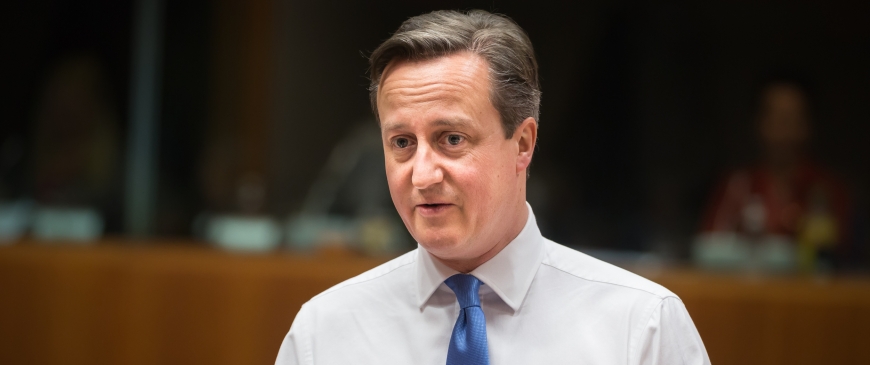
Will Europe ever stop being a headache for David Cameron?
For some time David Cameron has been trying to satisfy two very different audiences on Britain’s renegotiation with the EU. One, the Conservative eurosceptics, argue that he cannot achieve radical reform without making ambitious demands, and threatening to recommend a "No" vote unless he gets them. The other, the EU’s leaders, say they will give Cameron more help if he speaks softly and keeps his demands within the realm of the possible.
When Cameron kicked off the renegotiation at Thursday night’s dinner in Brussels, it became clear that he will work with grain of what is acceptable to his fellow leaders. British officials briefed that the government understood the EU treaties cannot be changed before a referendum. Eurosceptics are now preparing to attack Cameron’s lack of ambition.
Achieving change will be hard but not impossible. The other governments want the British to stay, but not any price. Many of them regard EU principles such as freedom of movement and non-discrimination as even more important than keeping Britain in. So Cameron is unlikely to be able to cut benefits like tax credits that go to EU migrants.
Other leaders respect him as an election-winner but, noting his history of ceding to eurosceptic pressure, ask whether he cares more about holding his party together or fighting to keep Britain in the EU. Some leaders say they will not take him seriously until he makes the case for Europe in Britain, even though that would upset many Conservatives.
One problem for Cameron in trying to achieve reform is that he has few close friends in EU capitals. Angela Merkel likes him but they have a history of misunderstanding each other, as over the appointment of Jean-Claude Juncker as Commission president. She worries that the British may expect Germany to fix the rest of the EU for them. Despite her clout, she cannot force 26 other governments to swallow reforms they dislike. The Germans also urge the British to resist the temptation to bash the Commission and the European Parliament. Cameron’s likely deal will include promises of EU legislation – which needs a proposal from the Commission as well as the approval of the Council of Ministers and the Parliament (which would certainly block any attempt to dilute workers’ rights).
If all goes well, Cameron could win an accord on extending the single market, negotiating more trade deals and curbing EU red tape; limiting unemployment benefits for EU migrants; protecting the single market against the risk of damage by the eurozone; interpreting the goal of "ever closer union" in ways the British can live with; and making it easier for national parliaments to object to EU laws.
None of this will change the fundamentals of how the EU works. If Cameron tries to claim the contrary, he will sound unconvincing. The referendum campaign will be about whether Britain is better off in or out. If Cameron wants to win it he must make the case for membership.
Charles Grant is director of the Centre for European Reform.
